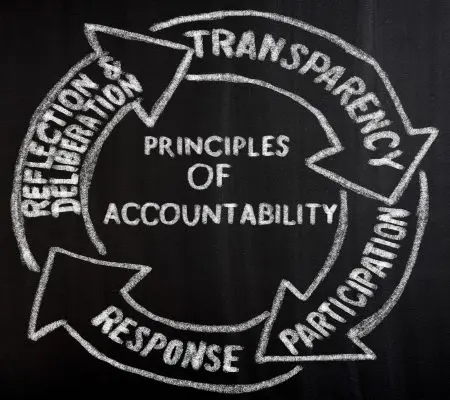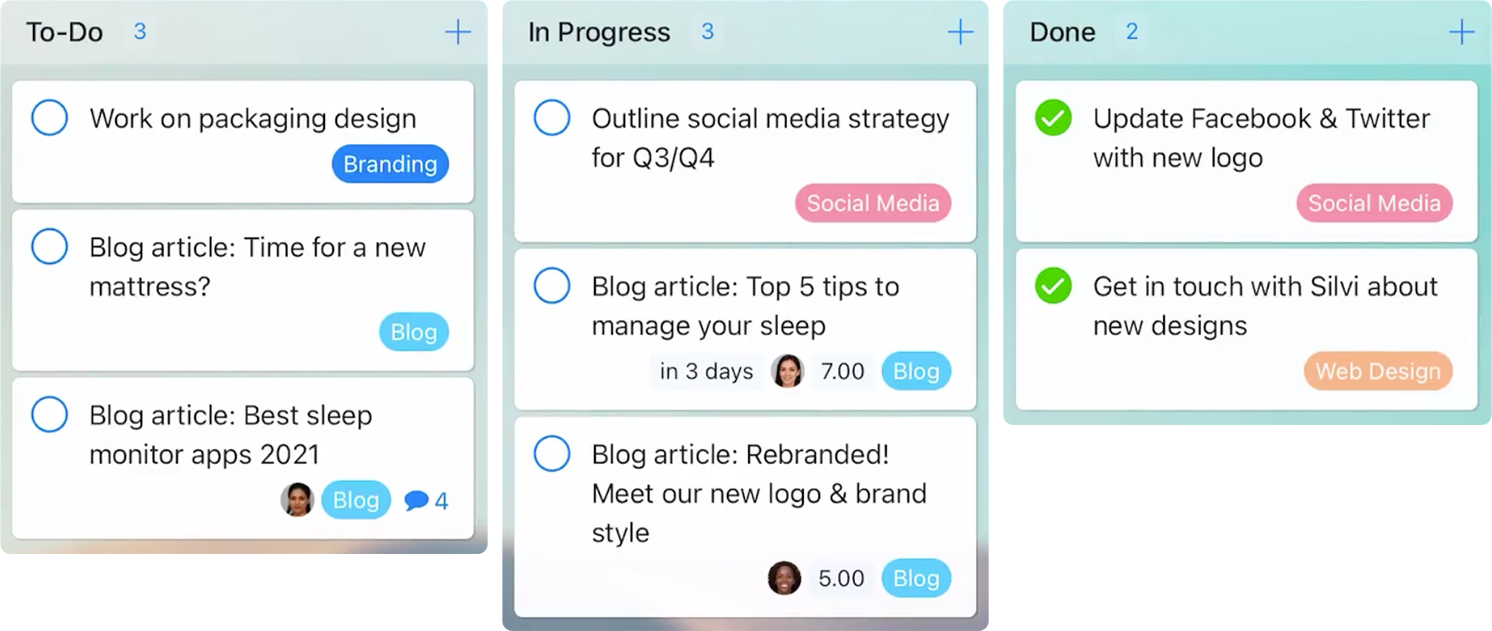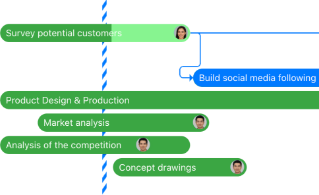
Flexibility in the workplace can be a great asset, allowing teams to adapt to changing conditions and make progress quickly. However, too much flexibility can lead to negative effects on the team, making it difficult for teams to stay on track and reach their goals. So how do you know when your team has reached the point of having too much flexibility?
In this article, we will explore some signs indicating when it might be time to rein in your team’s flexibility. Early recognition of these warning signs ensures that any necessary adjustments are made. This can help prevent things from spiralling out of control.
Lack of Accountability
It is important to remember that having a certain level of flexibility in the workplace is essential, but so is holding people accountable. If people are not held responsible for their actions, it can be a sign that this flexibility needs to be reined in. To ensure accountability and productivity, managers should set expectations for employees.
Without accountability, everything could quickly unravel as people begin disregarding work duties or deadlines without repercussions.

Establishing straightforward tasks and expectations can help ensure that everyone knows what their job is and that they will face the consequences should they fail to meet them. Adding more processes or even stricter guidelines to easily track performance may be necessary. Implementing those measures will make it more likely for teams to stay on track.
Accountability is essential for the success of any team. When it’s missing, people tend to become complacent, and their performance can suffer.
Poor Decision-Making Processes
Poor decision-making processes can be a significant warning sign that your team or workplace needs to have their flexibility tightened up. It’s important to review and improve the decision-making processes in order to improve the overall performance of the team or workplace. If someone isn’t taking the time to think through decisions or ensure they are sound, it could lead to more significant issues. Therefore, it is important to take the time to consider the potential consequences of decisions before taking action. To combat this, companies and teams should use critical thinking skills when making decisions.
These will help them weigh their options carefully and consider how these decisions will affect their goals in the future. By relying on robust decision-making processes, teams can ensure that their actions are productive and not wasteful.
Miscommunication Between Team Members
Miscommunication between team members can disrupt work, causing project management delays and potential financial loss. When miscommunication occurs more frequently, it’s a sign that a workplace or team needs to establish more structure and greater clarity between roles, responsibilities, and decision-making processes. This can help to prevent misunderstandings and improve overall communication within the team or workplace.

In addition, it might mean limiting certain team members from deviating too dramatically from their remit. It may also involve implementing more rigidity to reinforce the corporate culture.
Miscommunication is one of the biggest problems for any team. A lack of clarity can lead to misunderstandings and hamper progress. It’s thus important to make sure that everyone understands their roles, responsibilities, and shared goals.
Having clear guidelines in place helps build trust between members, encourages accountability, and ultimately supports increased efficiency to achieve the best results.

Optimize your project communication and task management with our user-friendly project management software.
Sign up for free today!
Unclear Goals and Objectives
Setting clear and achievable goals and objectives is essential when it comes to achieving workplace success. Unfortunately, many teams fail to set (or stick to) these guidelines, leading to chaos and decreased productivity.
This lack of clarity regarding how the team will achieve their targets is a warning sign that their flexibility has become too great. The team may need to implement regulations to keep themselves focused on their desired outcomes. Effective management can help bring back structure, harness the team’s collective power, and see them make real progress toward their goals.
Low-Quality Work Outputs
Without discipline and focus, companies may find that the quality of their work plummets, leading them to make costly mistakes or produce lacklustre results that fall far short of customer expectations. This can have a dire effect on morale and profitability. Therefore, it’s important to recognize when low-quality work is becoming an issue and make the necessary changes quickly.
You can help ensure everyone stays focused on delivering high-performance outcomes by resetting the flexibility balance in your workplace or team.
It’s important to be flexible, but there has to be a balance. For example, if your team is producing low-quality work or experiencing miscommunication issues, it’s time to put more structure in place.
Increased Stress Levels Among Team Members
Increased stress levels among team members can be a sign that their current flexibility is too much. Overworking employees or expecting them to take on more than their fair share of work can lead to burnout, and teams should be aware of this.
They need to take a step back and consider their goals and how they can be achieved without causing undue strain on team members. This could mean that more structure must be put in place to ensure everyone is on the same page. Furthermore, it may be necessary to balance each person’s workload evenly.

It could also mean setting more realistic expectations and allowing employees to take breaks to stay motivated and productive. By accepting these simple steps, teams can help ensure their flexibility is balanced. This will ensure that their members have the space to work on their best projects.
It’s important to have flexibility in the workplace, but not at the expense of team morale. When stress levels rise and quality begins to suffer, it’s time to look at creating more structure and balance in the workplace.
Lower Productivity Levels
Too much flexibility allowed to creep into a workplace or team can also cause low productivity levels. This can lead to confusion, lack of focus, and poor decision-making. Team members need to take a long hard look at how they are delegating responsibilities to regain control over the situation. They should also assess how roles and decision-making processes can be more rigid.
This will help ensure that everyone is on the same page and that tasks are completed in an orderly, efficient manner. It might also be necessary to institute regular performance reviews or feedback sessions. This way, any issues can be identified and addressed quickly.
Decreased Morale and Motivation
Decreased morale and motivation can be a sign that teams are over-flexible. This could mean not having enough structure or discipline to keep everyone focused and motivated. To ensure that team members remain engaged and productive, management should take the time to provide clear direction and set achievable goals. Additionally, it is important to reward good performance.

It might also be necessary to provide team-building activities or introduce more socializing among members. Doing so can help create a sense of community and a renewed commitment to meeting goals set by the team.
Teams can take steps to ensure that they balance flexibility with structure and discipline by understanding when there is too much flexibility in the workplace. This will help them progress and achieve better outcomes while ensuring that team members remain motivated and productive. Keeping the flexibility balance in check is essential for any successful workplace or team.
Reduced Efficiency in Current Operations
Reduced efficiency in current operations can be another sign that teams are too flexible. This could mean not having the right processes in place or a lack of communication between team members. Take a step back and evaluate how tasks are being delegated and managed. Implement better planning structures to ensure everyone is on the same page.
Having flexibility in the workplace is important, but it’s equally important to have structure and organization. Team members should be given enough freedom to achieve their goals without compromising the efficiency of current operations.
Everyone should receive regular feedback and support. Collaboration should be encouraged to ensure efficient task completion and maintain team members’ motivation and productivity. These steps might be necessary to achieve this goal.
Overwhelming Sense of Chaos and Confusion
Finally, an overwhelming sense of chaos and confusion can signal that the team is too flexible. This could mean not having the proper structure or that processes are not followed correctly. To address this issue, team members must evaluate their current systems and ensure everyone is on the same page.

It might also be necessary to introduce more structure or discipline and regular performance reviews and feedback. Taking these steps can help teams ensure that they are working in an organized and efficient manner. This also gives team members the space to work on their best projects.
Final Thoughts
Overall, teams need to understand when flexibility in the workplace has become too much. Low productivity levels, decreased morale and motivation, reduced efficiency in current operations, and an overwhelming sense of chaos and confusion can all show that teams are too flexible. In such cases, it may be necessary to reevaluate the level of flexibility within the team.
However, by taking time to evaluate their systems, implement better planning structures, provide clear direction, set achievable goals, and reward good performance, teams can ensure that they remain productive and motivated while maintaining the right balance between flexibility and structure.
About the Author: Catherine is a Finance Editor at Crediful where she covers a wide range of business and investment topics with the aim to help people achieve financial freedom. Passionate about financial literacy and considers it one of the most important life skills.





Leave a Reply